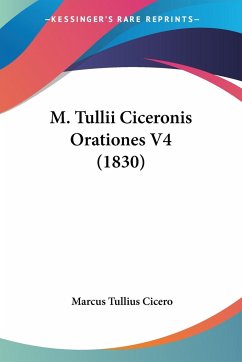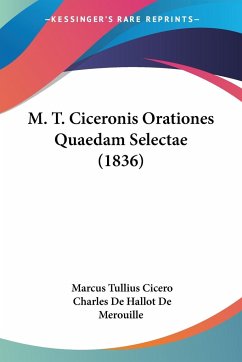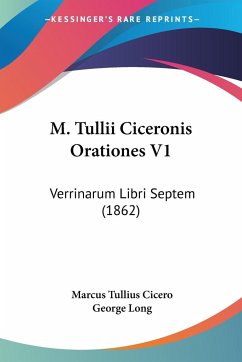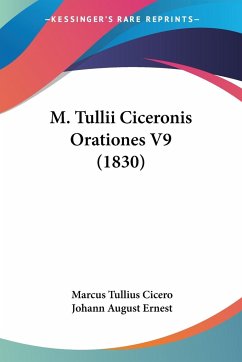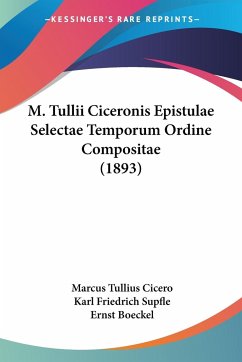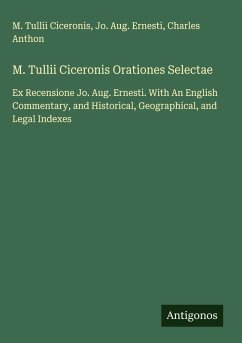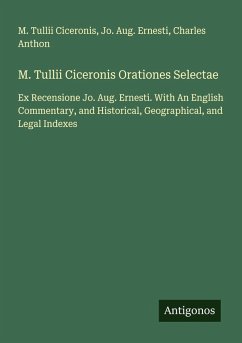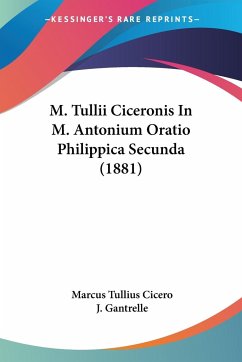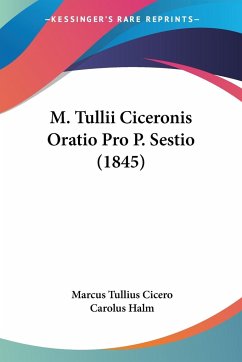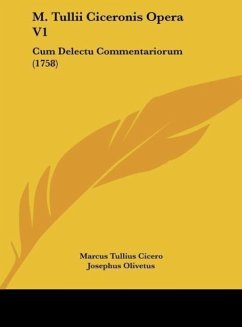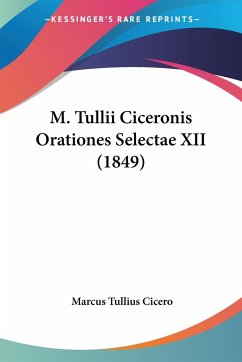
M. Tullii Ciceronis Orationes Selectae XII (1849)
Versandkostenfrei!
Versandfertig in 1-2 Wochen
31,99 €
inkl. MwSt.

PAYBACK Punkte
16 °P sammeln!
M. Tullii Ciceronis Orationes Selectae XII est liber qui continet duodecim orationes selectas a Marco Tullio Cicerone scriptas. Hae orationes sunt ex variis periodis Ciceronis vitae, et includunt orationes in Catilinam, pro Archia poeta, pro Milone, et pro Marcello, inter alias. Liber editus est anno MDCCCXLIX.This scarce antiquarian book is a facsimile reprint of the old original and may contain some imperfections such as library marks and notations. Because we believe this work is culturally important, we have made it available as part of our commitment for protecting, preserving, and promot...
M. Tullii Ciceronis Orationes Selectae XII est liber qui continet duodecim orationes selectas a Marco Tullio Cicerone scriptas. Hae orationes sunt ex variis periodis Ciceronis vitae, et includunt orationes in Catilinam, pro Archia poeta, pro Milone, et pro Marcello, inter alias. Liber editus est anno MDCCCXLIX.This scarce antiquarian book is a facsimile reprint of the old original and may contain some imperfections such as library marks and notations. Because we believe this work is culturally important, we have made it available as part of our commitment for protecting, preserving, and promoting the world's literature in affordable, high quality, modern editions, that are true to their original work.



